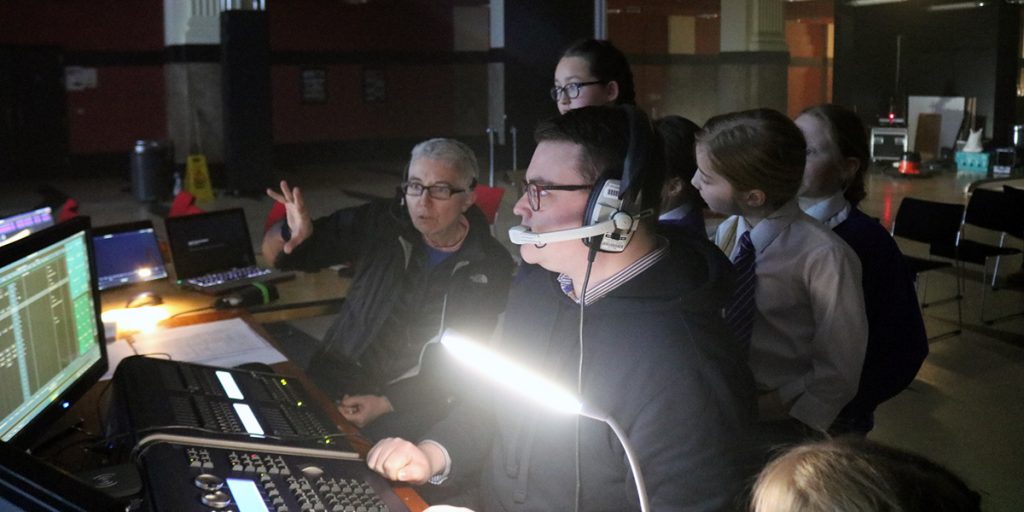As lockdown restrictions begin to ease and the touring and theatre industries take tentative steps back to work, it is my greatest hope that lighting production personnel can resume their professional roles with dignity and security, bolstered by a sense of community.
There’s no doubt the pandemic has exposed the precarious position of the live events and theatre-based workforce. Existing as a huge tribe of freelancers, we have a very poor structure within which people have to carry out their duties.
Though we are all in a cooperative situation, who do we turn to when things go wrong? I don’t think my colleagues at the ALD or I realised just how desperate the industry had become. It’s a situation that has enraged, but also empowered us to pull more of the community together to create a hub for opportunities and support. At the beginning of the pandemic, for example, manufacturers who were unsure of how to help, threw training at us from every direction – and wonderful though it was, it was hard to keep up. We recognise the continued importance of that training, formalising it for our members into a monthly online event. Corporate ALD members are an important link that helped to keep ALD members up to date with the latest technology, which enabled new expertise to be learned from even the most remote locations.
We need manufacturers to continue in their role as providers of much needed career progression development. As ALD Corporate members, manufacturers are a strong focal point in our ecosystem and play a crucial role in the ALD creating the community upon which our members rely.
We need communities – the pandemic has demonstrated that. The ALD is determined to put such structures in place. We need to support members of our association and the wider profession, and work with the might of a collective to smooth the path for lighting production to be a sustainable profession. We are already hearing anecdotally that production company losses are filtering down to freelance lighting designers and lighting production staff, where the suggestion is that they take a reduced fee. The ALD suggests there needs to be an industry-wide conversation about expectations on both sides of the relationship.
At the ALD, we have worked hard through the pandemic to create contract checklists for each role we represent, from lighting designers to lighting technicians, through assistant and associate lighting designers, programmers and production electricians. Designed as discussion documents to secure workplace rights, it’s now up to every individual to help make these checklists an accepted practice within the industry. Each of us must remember to check that all the needs, relevant to a specific work situation, are fully agreed. If, together, we all start to ask for contracts and better conditions, the practice will soon become the norm.
The ALD’s Professional Working Group, headed up by Lucy Carter, has also produced a set of documents which scope out acceptable and dignified working conditions and practices. It’s essential that we familiarise ourselves with the guides, that include the ALD Producers’ Good Practice Guide to Working with ALD Members, to help challenge the status quo and educate those we work for about our basic working rights and needs. All our members need to be having these conversations, not only for themselves but for the wider lighting community. Currently, these documents are available for everyone to read on the ALD website, not just ALD members.
We haven’t been working in isolation though. To ensure we were leveraging best practices for the documentation we produced, we talked with our peer associations and discovered they were doing similar work to us. It made sense to Join forces and from that AAPTLE was born. AAPTLE is the Alliance of Associations and Professionals in Theatre & Live Events and it incorporates a total of 15 of the principal technical and creative organisations. By grouping together, we gain strength not only in numbers but in our breadth of representation. It’s that strength in the community.
As one representative body, AAPTLE can campaign with greater impact to the unions, producers and the government. That works both ways and now a channel exists for those institutions to also talk directly to us, rather than having to take indirect routes which have not worked for us in the past.
From our perspective, it gives freelancers a really strong voice with a chance to be heard. Pulling together with every discipline represented, we have the ability to iron out the common bad practices as a unified front.
With the huge stress of the past year taking its toll, we must maintain the conversations of togetherness as we move forward. Positive mental health is an ongoing conversation within our community, and as lighting professionals, we know too well how lonely freelance work in lighting can be. Whilst no one has all the answers, it’s important for the ALD to advocate a healthy working environment and also to support others to live it.
Our Wellbeing working group has set up a number of activities to foster a greater community, including an online cooking group and a book club. With more than one thing in common already, these groups are bringing together vital community links where previously there may have been few.
It is more important than ever as we head back to work, that practitioners and companies work together to build on the community we have created and pulled upon over the past year, to build a more positive future for the whole of our profession. At the ALD, we are making that part of our goal.
This article originally appeared in issue #261 of TPi, which you can read here.
Photo: The ALD

